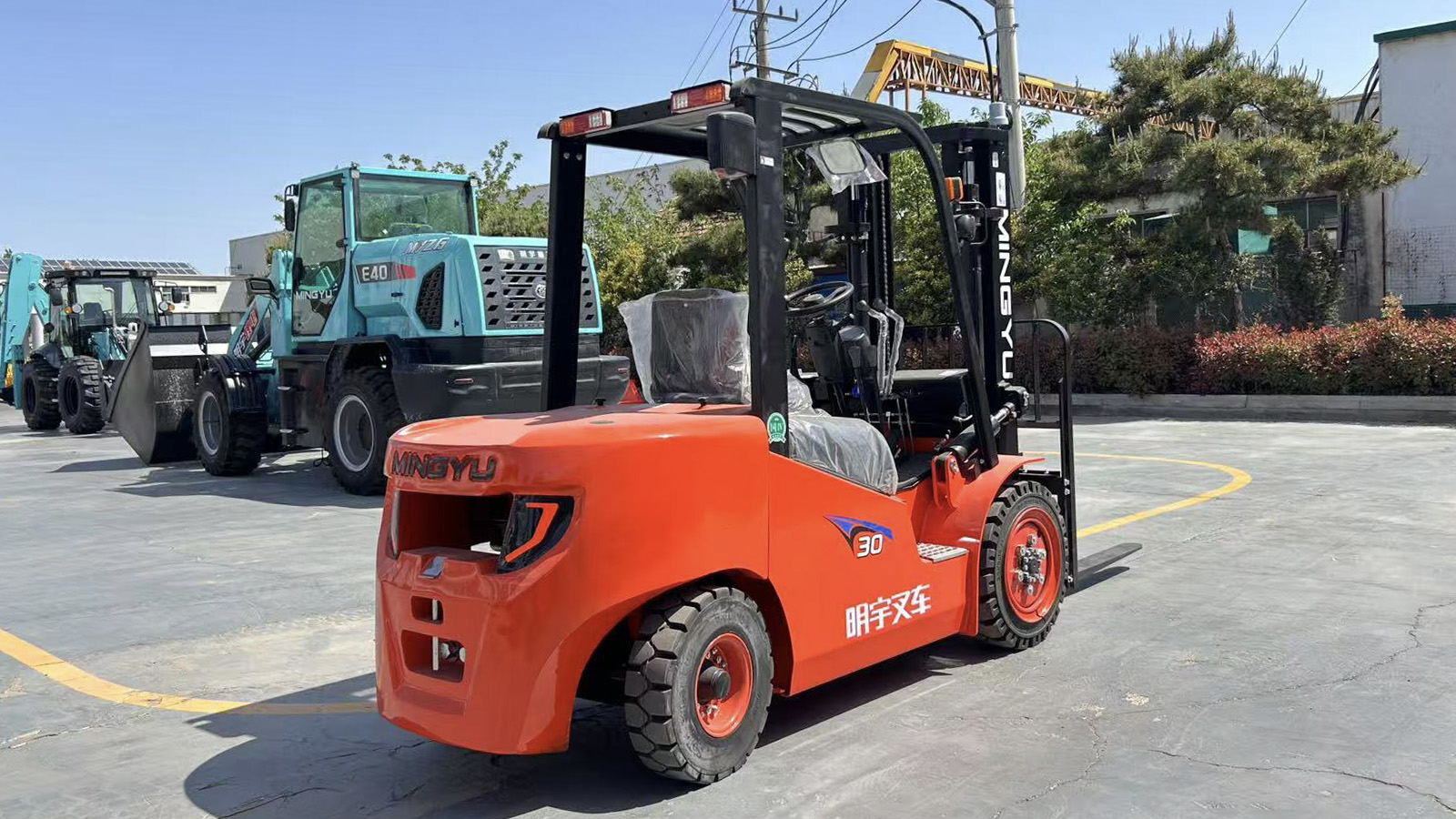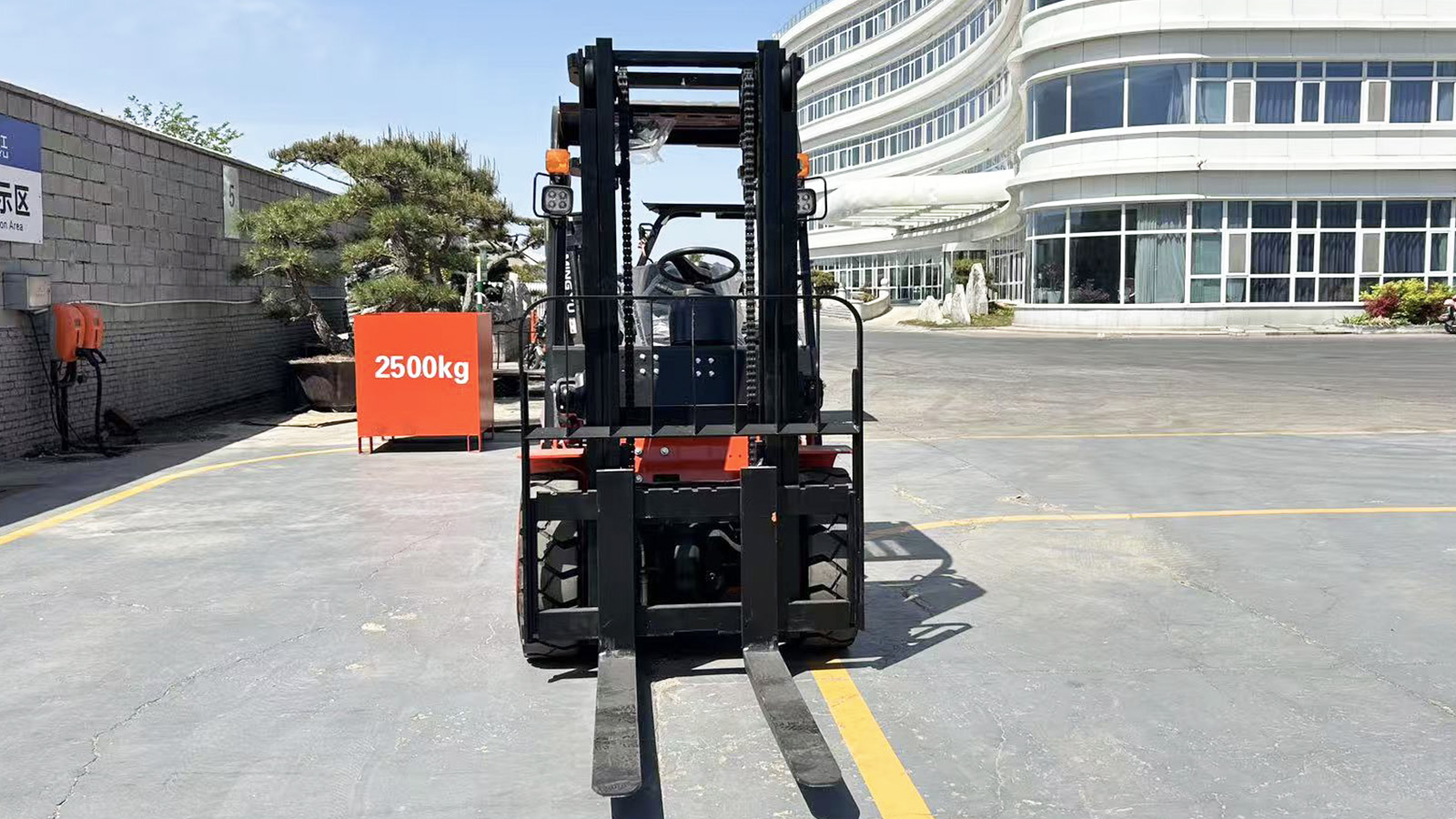Introduction Forklifts are indispensable machines in many industries, from warehousing and manufacturing to construction and shipping. One key aspect that determines a forklift’s performance, cost-efficiency, and suitability for specific environments is its power source. Among the various fuel types available, gasoline and diesel remain prominent choices, especially for outdoor and heavy-duty operations.
This article addresses the common question: Are there both gasoline and diesel forklifts? We explore the differences, benefits, drawbacks, and ideal applications for each type. By the end, you’ll have a clear understanding of how each forklift type fits into different industrial scenarios.
Types of Fuel-Powered Forklifts Forklifts are typically categorized by their power source, which significantly impacts their operational characteristics. The most common types include:
Electric Forklifts – Powered by rechargeable batteries, ideal for indoor use due to zero emissions.
Gasoline Forklifts – Run on standard gasoline, offering moderate power and flexibility.
Diesel Forklifts – Known for high power output, suited for outdoor and heavy-duty applications.
LPG Forklifts – Use liquid petroleum gas, providing a middle ground between electric and internal combustion models.
For this article, we focus on internal combustion engine (ICE) forklifts—specifically gasoline and diesel models—comparing their performance, cost, and applications.
Gasoline Forklifts Gasoline-powered forklifts use standard petrol as their fuel. They operate using an internal combustion engine similar to those found in cars. These forklifts are often used in moderate-duty applications and are most effective in semi-outdoor or well-ventilated spaces.
Use Cases
Loading docks
Light outdoor tasks
Distribution centers
Advantages
Quick refueling compared to battery charging
Lower initial cost compared to diesel forklifts
Readily available fuel
Smooth and quiet operation compared to diesel
Disadvantages
Higher fuel costs than diesel per unit of energy
Emissions make them unsuitable for indoor environments
Lower torque and power for heavy lifting
Shorter engine life under intense use
Diesel Forklifts Diesel forklifts use a diesel internal combustion engine, known for its power and durability. These machines are built for demanding outdoor tasks and are the go-to option for rugged environments where high torque is required.
Use Cases
Construction sites
Ports and shipyards
Mining and heavy material handling
Advantages
High torque and power output for heavy loads
Better fuel efficiency under load
Longer engine lifespan
More durable components for tough environments
Disadvantages
Noisy compared to gasoline or electric models
Produce more emissions and particulates
Require larger, more costly maintenance and service
Not allowed in many indoor or enclosed workspaces due to ventilation issues
Key Differences Between Gasoline and Diesel Forklifts Understanding the distinctions between gasoline and diesel forklifts can help you choose the right model for your needs.
Power & Performance
Diesel engines generate more torque, making them better for heavy-duty tasks.
Gasoline forklifts provide smoother operation but are less powerful.
Emissions
Diesel forklifts emit more pollutants, which restricts their use in indoor environments.
Gasoline models emit less than diesel but still require proper ventilation.
Fuel Cost & Efficiency
Diesel fuel generally offers more energy per liter, improving efficiency.
Gasoline may be cheaper per gallon but often leads to higher long-term fuel costs.
Noise & Comfort
Diesel engines are louder and produce more vibration.
Gasoline forklifts are quieter and more comfortable for operators in close environments.
Environmental Suitability
Diesel forklifts are suitable for outdoor and rugged settings.
Gasoline forklifts can be used both outdoors and in well-ventilated indoor areas.
Safety and Regulations Fuel-powered forklifts must adhere to safety regulations related to emissions, ventilation, and fire risk.
Emissions Standards
Regions like the U.S. and EU enforce strict regulations on engine emissions.
Diesel engines often require filters or emissions treatment systems.
Indoor Air Quality
Gasoline and diesel forklifts emit CO and NOx gases, which are hazardous in enclosed spaces.
Employers must ensure proper ventilation and adhere to OSHA/ISO standards.
Fuel Handling
Both fuels require safe storage and handling procedures.
Diesel is less flammable than gasoline, making it slightly safer in some contexts.
Maintenance and Lifespan Maintenance needs vary significantly between gasoline and diesel models.
Gasoline Forklifts
Easier to start and maintain in cold conditions
Require frequent oil changes and spark plug replacements
Engine wear is faster under continuous heavy use
Diesel Forklifts
Lower RPMs mean less wear and longer lifespan
Require robust maintenance schedules due to particulate filters and injectors
Better for long-term, heavy-duty applications
Which One Is Right for Your Operation? Choosing between gasoline and diesel forklifts depends on several factors:
Consider the Following:
Indoor or Outdoor Use: Diesel for outdoor, gasoline for semi-indoor/outdoor
Load Weight: Diesel for heavy loads, gasoline for lighter operations
Budget: Gasoline is cheaper initially; diesel offers long-term savings
Regulations: Consider local emissions laws and noise restrictions
Emerging Trends and Alternatives The market is evolving with a shift toward cleaner, more sustainable solutions.
Electric Forklifts
Gaining popularity for indoor use due to zero emissions
Quiet operation and low maintenance
Hybrid Models
Combine internal combustion with electric components
Offer better fuel economy and reduced emissions
Alternative Fuels
Compressed natural gas (CNG), hydrogen fuel cells, and biofuels are being tested
Lower environmental impact but require new infrastructure
Conclusion Yes, both gasoline and diesel forklifts are available, and each has unique benefits and drawbacks. Gasoline forklifts provide flexibility and are ideal for moderate outdoor or ventilated indoor use. Diesel forklifts offer unmatched power and durability for heavy-duty, outdoor applications.
Choosing the right forklift depends on your specific operational needs, environmental conditions, and budget. As technology advances, businesses must also consider future-proofing their fleets with cleaner alternatives. Always consult with equipment suppliers and safety experts before making your investment to ensure optimal performance and compliance.
Post time:Apr.21.2025



